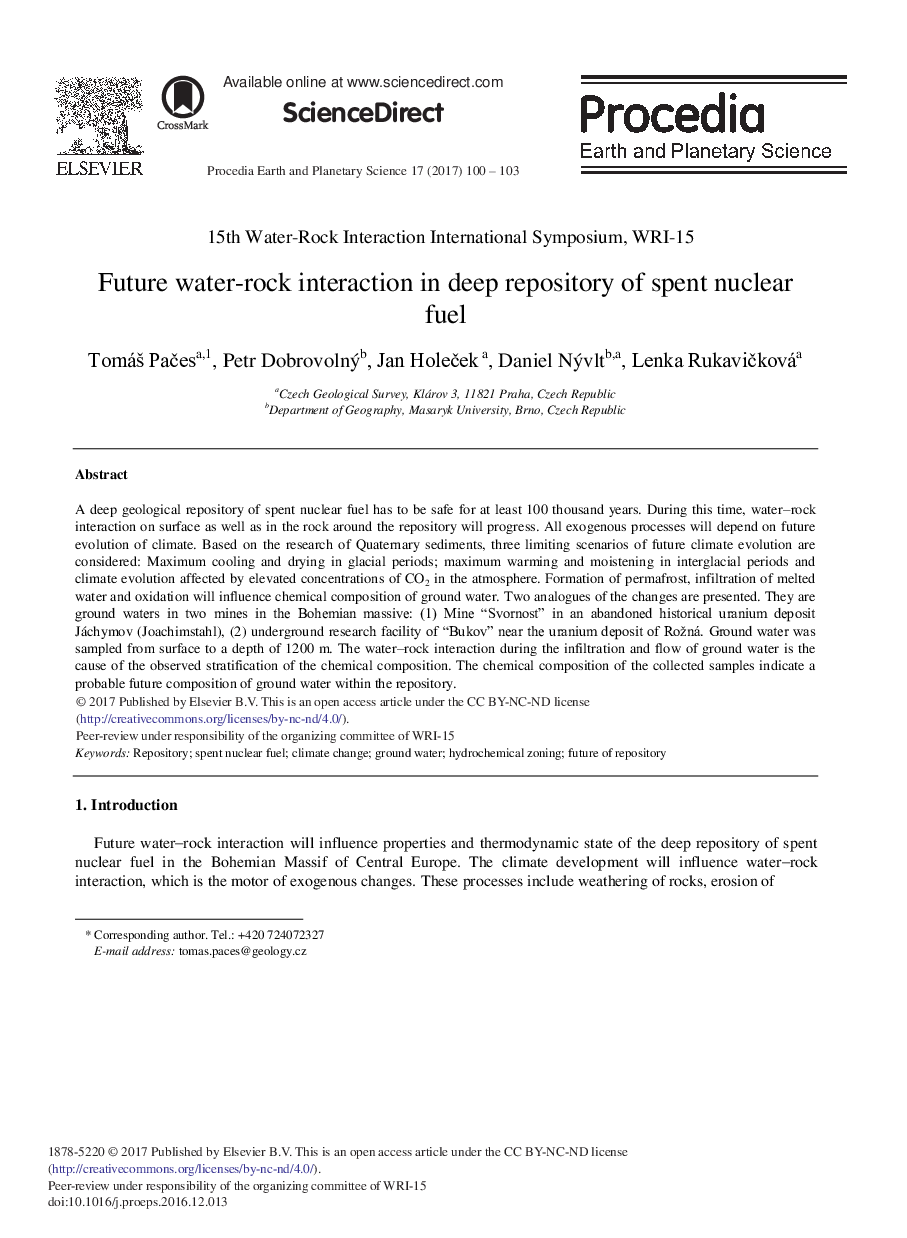| Article ID | Journal | Published Year | Pages | File Type |
|---|---|---|---|---|
| 5779244 | Procedia Earth and Planetary Science | 2017 | 4 Pages |
Abstract
A deep geological repository of spent nuclear fuel has to be safe for at least 100 thousand years. During this time, water-rock interaction on surface as well as in the rock around the repository will progress. All exogenous processes will depend on future evolution of climate. Based on the research of Quaternary sediments, three limiting scenarios of future climate evolution are considered: Maximum cooling and drying in glacial periods; maximum warming and moistening in interglacial periods and climate evolution affected by elevated concentrations of CO2 in the atmosphere. Formation of permafrost, infiltration of melted water and oxidation will influence chemical composition of ground water. Two analogues of the changes are presented. They are ground waters in two mines in the Bohemian massive: (1) Mine “Svornost” in an abandoned historical uranium deposit Jáchymov (Joachimstahl), (2) underground research facility of “Bukov” near the uranium deposit of Rožná. Ground water was sampled from surface to a depth of 1200 m. The water-rock interaction during the infiltration and flow of ground water is the cause of the observed stratification of the chemical composition. The chemical composition of the collected samples indicate a probable future composition of ground water within the repository.
Related Topics
Physical Sciences and Engineering
Earth and Planetary Sciences
Atmospheric Science
Authors
TomáÅ¡ PaÄes, Petr Dobrovolný, Jan HoleÄek, Daniel Nývlt, Lenka RukaviÄková,
